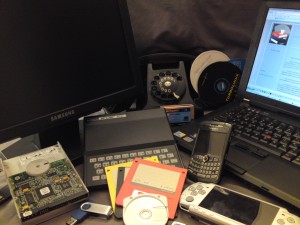Our Smart Phones are Listening

Lately, I have noticed that I am receiving adds for items, that I have spoken about but have not searched for on the Internet. At first, I thought it was just a coincidence, but it has happened too many times for us to ignore. It has led me to wonder; are our smart phones listening to us?
When smart televisions were introduced to the market in 2008, they came with speech recognition so they could comply with human commands, such as increase volume without touching a remote. However, the privacy policy of smart televisions actually came with a warning stating that all spoken words would be captured and transmitted to a third party, so that your voice commands could be converted to text. Additionally, all data that is collected would be used for research to assist with additional improvements in their products.
However, in 2017, Vizio would pay over two million dollars to the FTC to settle a complaint that Vizio collected data through a built-in spy device using image recognition technology. Vizio televisions would capture data once every second from a segment of the screen. The data would then be compared against a database that contained other media content such as films, television shows and advertisement to ascertain what was being watched and correlated with the IP address. The IP address would also then know the demographic of the household, which was then used to sell to businesses that needed to understand their audience.
We have also invited Alexa, Google Home and Siri into our homes and we have found out that they too are listening, not just to our commands but to our conversations. While the companies have stated that they use humans to help improve their artificial intelligence, it remains troubling that the consumer is not able to choose which conversations are reviewed. And how do you protect from the rogue insider who has access to very sensitive information?
While it may seem that I have gone off tract from the topic, regarding is our smart phone actually listening to our conversations, the truth is, that they are using the very same technology that manufacture our digital products today, of course they are listening to our conversations.
In fact, the latest software update for iPhone resumes the use of humans to review Siri commands. In August, Apple had stopped and apologized for using people and not just machines to review audio files. Wow, a two month break.
Jill has been saying for a while that her new smart phone is listening to her. While I would play with the settings, targeted ads continued to show, not only on the phone, but also her computer.
How to we reverse the trend to our privacy and digital devices?
First, we need to take steps to turn off permissions to applications that have access to our microphone. This is not an easy task because I found when denying the microphone permission to the app, it would prevent the entire app from working. I then decided, how much do I use this app, and is it worth it to have the microphone on. I was able to only grant the microphone permission to two applications on Jill’s phone, yes I started with Jill’s phone.
If you have a phone that uses Android, go to Settings and then Apps. In the upper right hand corner you will see three vertical dots, touch the vertical dots and a menu appears. App Permissions is listed in the menu. Touch App Permissions, and go to Microphone. You should then see a list of applications that have access to your microphone.
Apple iPhone is similar in that you need to go Settings, but then go to Privacy. In the Privacy menu, you will see Microphone. Touch Microphone, and you will see the applications that have access.
Second, each manufacture of smart televisions will be different but basically you will look for Settings in the Menu and then System. Within the System Menu you will either find: Expert Settings or Smart Features and then find Voice.
We need to be the ones deciding the price we are willing to pay for privacy verses convince. The only way to stay safely Connected is to be in control of your devices, not the other way around.






